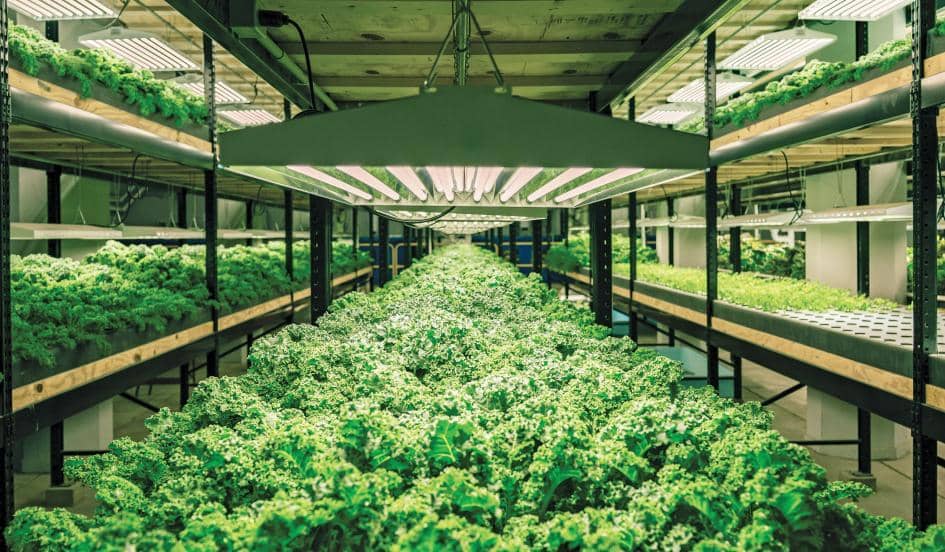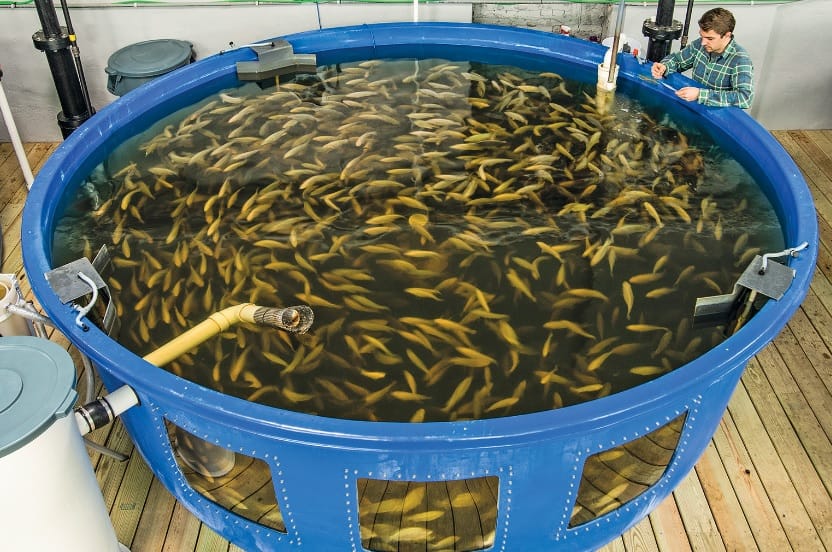 One of my fellow students of Steps to Knowledge recently brought my attention to this April 2014 story in the Minneapolis Star-Tribune about Urban Organics. Since then, Urban Organics has generated a certain amount of buzz. Urban Organics was recently mentioned in Newsweek magazine. What’s the story? Some entrepreneurs took an abandoned brewery on the poorer side of St. Paul, Minnesota. They created/are creating a sustainable vegetable and fish farming facility, using the techniques of aquaponics.
One of my fellow students of Steps to Knowledge recently brought my attention to this April 2014 story in the Minneapolis Star-Tribune about Urban Organics. Since then, Urban Organics has generated a certain amount of buzz. Urban Organics was recently mentioned in Newsweek magazine. What’s the story? Some entrepreneurs took an abandoned brewery on the poorer side of St. Paul, Minnesota. They created/are creating a sustainable vegetable and fish farming facility, using the techniques of aquaponics.
Bring your own ecosystem
Some of you may not have heard of aquaponics. Many people have heard of hydroponics. Hydroponics is the practice of growing plants in mineral nutrient solutions instead of soil. People who do hydroponic gardening have to get the nutrients for their nutrient solutions from somewhere. Hydroponic gardening is established to the extent that you can buy hydroponic nutrients at well-known gardening stores. Aquaponics makes the process more sustainable by using a combination of fish and bacteria to produce the nutrients for the plants. In the case of Urban Organics, the fish are tilapia. The bacteria are nitrosomonas (which convert ammonia into nitrites) and nitrobacter (which convert nitrites into nitrates). These are the bacteria which are used in most aquaponic facilities. The total amount of water used is much less than for plants grown in soil.
Aquaponics has been around in various forms for quite some time. It has been successfully demonstrated on a small scale in various places such as London and Chicago. Urban Organics is attempting to recreate these demonstrations on a larger scale. It’s not like these larger scale projects haven’t been done before. For example, a large-scale aquaponics project exists in Abu Dhabi in the United Arab Emirates. As far as I can tell, it was a government project. While Urban Organics received a grant of $150,000 from the city of St. Paul, most of its funding is coming from its founders (Dave Heider and Fred Haberman). If the Urban Organics project successfully reaches planned peak production, it will produce seven times as much fish as the Abu Dhabi project produced in 2012. This is therefore a big deal, taking the “bring your own ecosystem” idea to a whole new level.
Large-scale aquaponics projects have also failed in the past. They have failed in the past due to difficulties with the filtration system. Just as many aquariums have died painful deaths due to difficulties in managing the levels of nitrogen in the water, many aquaponics facilities have died painful deaths due to difficulties in managing the levels of nitrogen in various stages of the project. Urban Organics has a recirculating aquaculture system designed, built and contributed by Pentair Aquatic Eco-Systems. Will it work on the scale envisioned? We will soon find out.
There is a grocery store in downtown St. Paul where you can purchase kale and other greens grown at Urban Organics. The produce manager at the grocery store reported a positive response. The plan is for tilapia to also be available for purchase in the summer of 2014. I have not yet had the opportunity to conduct a comparison between Urban Organics produce and other produce. I believe it would be interesting to conduct a nutritional analysis of their produce. The founders say they eat the things they grow on a regular basis.
Some people will say that this is all about providing trendy greens for rich hipsters. But I prefer to consider this as an experiment in reducing the length and complexity of the food supply chain, which I believe would be a very good thing indeed in the days to come. If this project succeeds, perhaps it can be replicated in other cities. If you want to make food easier to obtain, bring your own ecosystem.
Welcome to Mystery of Ascension! We are students and advocates of the the New Message from God. We are members of a worldwide community. We seek to assist the world in successfully navigating difficult times ahead. We seek to assist the world in successfully emerging into a greater community of intelligent life. You will also find some poetry. Find out more about us here. Contact us here.

